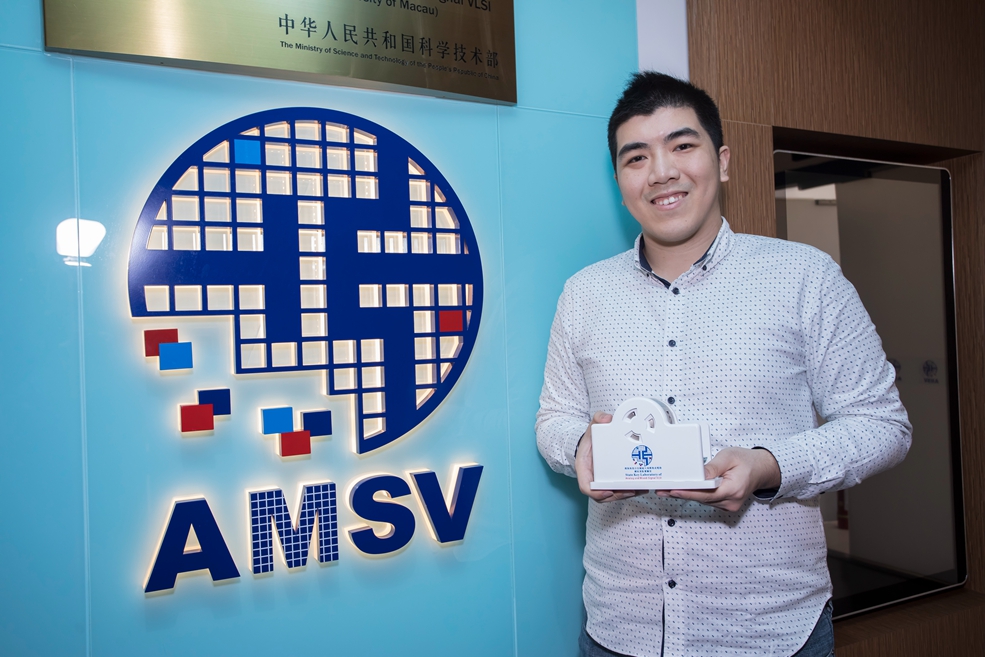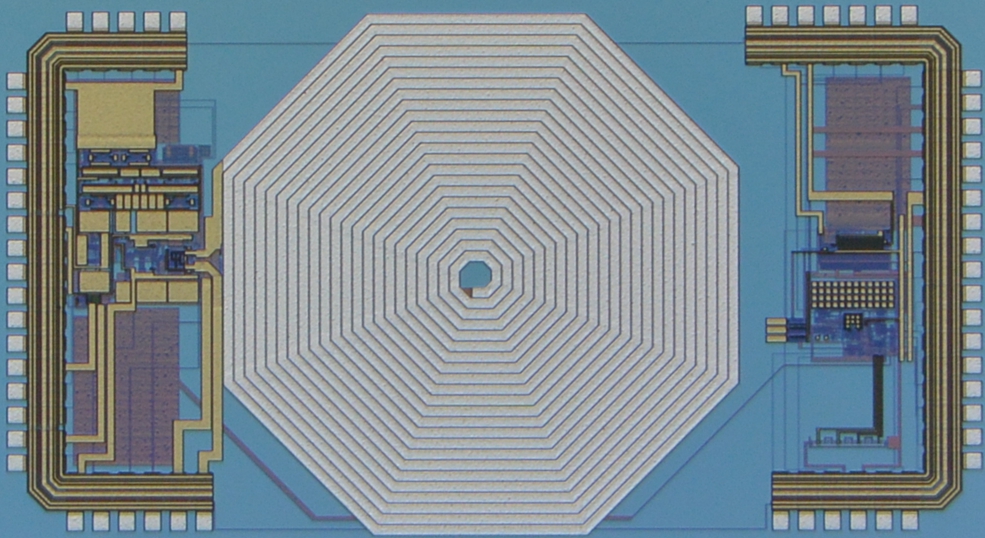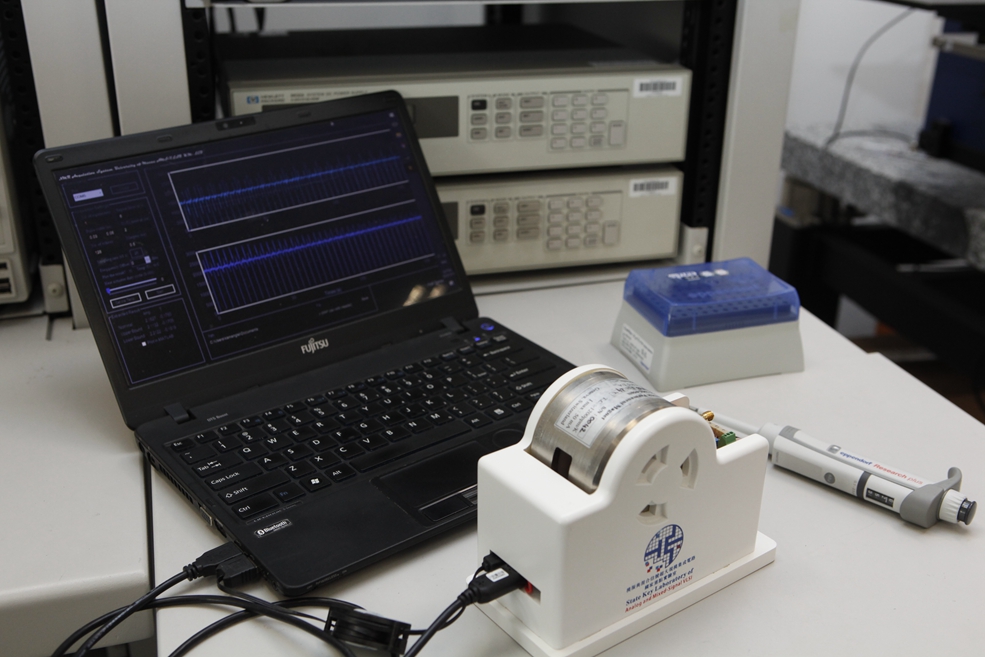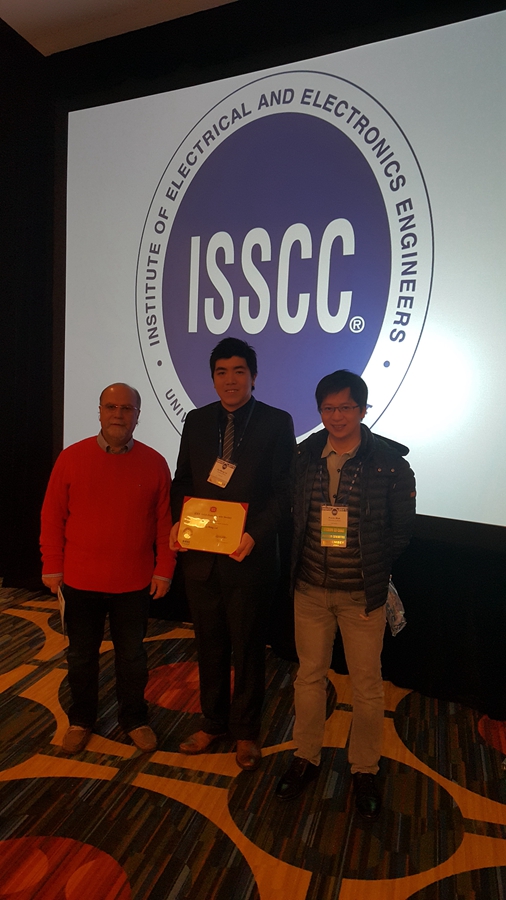Source: umagazine
Dr Lei Ka Meng, who was born and raised in Macao, obtained a bachelor’s degree in electrical and electronics engineering and a PhD degree in electrical and computer engineering from the University of Macau (UM). Because of his outstanding research achievements, Dr Lei was recruited by UM as a Macao Fellow after graduation. is year he has been invited by Harvard University to be a visiting scholar
Deciding to Become a Researcher in
Sophomore Year
Dr Lei received his bachelor’s degree in electrical and electronics
engineering from UM in 2012. He was also among the rst cohort to graduate from
the UM Honours College (HC). Because of his outstanding performance in
research, he was admitted to the university for PhD studies directly after
graduation.
Dr Lei has benefited greatly from the university’s new educational model. As
one of the first graduates of the HC, he says that an HC programme which is
designed to help students gain research experience encouraged him to set his
career goals. The programme provides each student with the opportunity to
conduct research under the guidance of a professor from his or her faculty.
Through this programme, Dr Lei was able to participate in some of the best
research projects of UM’s State Key Laboratory of Analog and Mixed-Signal VLSI
(AMS-VLSI Lab). These projects helped him develop a solid foundation in
scientific research and allowed him to gain hands-on experience that would
later prove invaluable.
Dr Lei says he was very fortunate to have the opportunity to participate in
important research projects during his sophomore year at UM. rough those
projects he realised there was enormous untapped potential in applying
microelectronics technology to biological research, which ultimately led to his
decision to pursue a career in this field. ‘ at year was a turning point in my
life,’ says Dr Lei. ‘Although I encountered many challenges in research and
often had to work all night to complete those projects, I enjoyed the process
very much. No words can describe how happy I am to learn that my research
findings are recognised by others.
Research to Lower Cost and Time of
Diagnostic Tests
Dr Lei is currently working on his research project, a parallel nuclear
magnetic resonance (NMR) platform combining advanced microfluidic, magnetic-sensing
and integrated circuits technologies, which can significantly increase the
efficiency and effectiveness of NMR experiments. The technologies can be applied to biological diagnostic tests,
such as blood and protein tests. They can effectively reduce the cost and time
of traditional diagnostic tests. ‘The current diagnostic tests usually require
the use of large devices and a lot of manpower and time. With the NMR
technique, we no longer need to use large devices for diagnostic tests and can
bring down the cost from between MOP 500,000 and MOP 600,000 to between MOP
30,000 and MOP 40,000,’ he says. ‘In addition, this technique allows diagnostic
tests to be done outside hospitals. Even clinics in remote and backward regions
can afford it. I hope this technique will be promoted to all parts of the
world.
It so happens that some researchers at Harvard University are conducting a
similar project. Learning of Dr Lei’s research, Harvard invited Dr Lei to be a
visiting scholar for a two-year term, starting from the second half of 2017.
When asked whether he is nervous about conducting research at a world-class
university, Dr Lei says he feels very calm. ‘ I have learned how to maintain a
positive attitude towards opportunities and challenges after many years of
experience conducting high-quality research at UM,’ he says. ‘I will read more
related research documents to prepare myself for it.’
Gaining International Recognition
In February 2017, Dr Lei received the prestigious Predoctoral Achievement Award
from the Solid-State Circuits Society of the Institute of Electrical and
Electronics Engineers (IEEE), which is given to outstanding postgraduate
students in the field of solid-state circuits. Lei’s PhD thesis will be
expanded into a research book to be published in 2017 by Springer, the world’s
largest science publisher
Dr Lei’s research capacity has been recognised since he was an undergraduate
student. One of his research projects during that time led to a paper published
by an SCI-indexed journal. Another of his papers received the Best Paper Award
at the Asia Symposium on Quality Electronic Design 2013. During his PhD
studies, Dr Lei focused on a new multi-disciplinary direction, a CMOS NMR
system for point-of-care diagnosis, which makes possible intelligent detection
of biological targets on a handheld platform. e related findings have been
published in well-known journals, namely IEEE Journal of Solid-State Circuits,
Lab on a Chip, and Analyst, as well as presented at the IEEE International Solid-State
Circuits Conference (ISSCC), IEEE Asian Solid-State Circuits Conference
(ASSCC), and the International Conference on Miniaturised Systems for Chemistry
and Life Sciences.
In November 2015, Dr Lei presented a paper at the IEEE ASSCC. He also demonstrated
his work in the Student Design Contest and received the Distinguished Design
Award. Subsequently, he was invited to submit his work to a special issue of
the IEEE Journal of Solid-State Circuits (JSSC). In February 2016, Dr Lei
presented work developed with collaborators from the University of Pavia,
Italy, at the IEEE ISSCC and received the ISSCC Silkroad Award, which is given
to outstanding students from Asia, Australia, and the Pacific region. In
addition, this work was selected for live demonstration during the conference.
It was the first time that a work from Macao, Hong Kong, or mainland China had
been selected for live demonstration at the ISSCC. e related paper was also
selected as one of the ISSCC Technical Highlights of the conference. Because of
his excellent performance at the conference, Dr Lei was later invited to submit
a full-length paper to a special issue of the JSSC.
Grateful to UM for Abundant Resources
If the foundation of a university is its campus, then the soul of a university
must be its faculty members. Dr Lei met his mentor, Prof Mak Pui In, when he
was an undergraduate student. ‘Prof Mak is not only my teacher; he is also my
friend. He has been guiding me since the beginning. His dedication to research
and his passion have had a great influence on me,’ says Dr Lei. ‘He is willing
to spend a lot of his personal time solving problems together with his
students. I admire him for that.’
UM devotes considerable resources to research and provides great support for
student researchers. ‘When I was a PhD student, I did not have a full-time or
part-time job,’ says Dr Lei. ‘UM’s research funding and scholarships allowed me
to focus on research.’ He adds that UM provides students who are involved in
research activities with financial support equal to the salary of a full-time
job, in order to spare them financial worries.
In addition to providing state-of-the-art research facilities for faculty
members and students, UM has also launched the Macao Fellow Programme to
encourage talented young scholars from Macao to participate in research.
Participants in the programme will receive sponsorship to develop their
academic careers. Dr Lei’s research activity at Harvard is supported by the
programme. ‘I hope to return to UM to teach after completing my research at
Harvard, because I was born and raised in Macao and my family and friends are
all here,’ he says. ‘I hope to publish more papers and achieve better results
in research as my way of repaying UM.

42286-79196

UM is now a world leader in the field of chip technologies

A CMOS nuclear magnetic resonance system for point-of-care diagnosis can significantly reduce the cost and time of traditional biological diagnostic tests

Dr Lei Ka Meng with Prof Mak Pui In (right) and Vice Rector Prof Rui Martins after Dr Lei received the Predoctoral Achievement Award from the IEEE Solid-State Circuits Society
